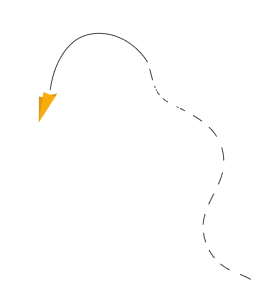What is Psychosocial Recovery Coaching, and How Can it Help You?

At a glance:

· Recovery coaches tailor assistance to your individual needs.
· Participants can choose coaches with personal mental health experience.
· Coaches help access essential mental health and NDIS services.
· The service focuses on enabling NDIS participants to lead fulfilling lives.
Psychosocial recovery coaching is a service aimed at helping individuals with mental health challenges navigate their recovery journey. This support, as a part of the National Disability Insurance Scheme (NDIS), offers personalised guidance and connection to essential services. Recovery coaches work closely with you to understand their needs and goals, providing assistance tailored to each individual's unique situation. They help individuals access the right resources, understand the NDIS process and their NDIS Plan, and connect with mental health services, all while fostering a supportive and non-judgmental environment.
The service is designed to empower participants to live meaningful and fulfilling lives despite their challenges. It offers a unique advantage by allowing participants to choose coaches with lived experience, bringing an empathetic and informed perspective to the support they provide. This approach ensures that participants receive comprehensive, compassionate assistance, helping them achieve their personal and recovery goals. Psychosocial recovery coaching is particularly valuable for those needing continuous support to manage their mental health and navigate the complexities of available services.
Understanding Psychosocial Recovery Coaching
A psychosocial recovery coach is a professional with mental health knowledge (generally with lived experience) who works closely with participants to understand their needs and goals. This role is distinct in its focus on mental health and recovery, providing personalised support that is attuned to the individual's unique circumstances.
Recovery coaches offer various forms of assistance, including:
Personalised Support: Coaches spend time with participants and their families to get a comprehensive understanding of their needs. This tailored approach ensures that the support provided is relevant and effective.
Service Navigation: They help participants identify and access different services and supports, both within the NDIS framework and through other community resources. This guidance is invaluable in navigating the often complex landscape of available services.
Mental Health Services: Recovery coaches assist in connecting participants with appropriate mental health services, ensuring they receive the care and support needed to manage their condition.
NDIS Understanding: Coaches help participants better understand the NDIS, assisting them in making the most of their plans. This includes explaining the intricacies of the NDIS, helping to set realistic goals, and ensuring that the services accessed align with these goals.
The Value of Lived Experience
One unique aspect of recovery coaching is the option to choose a coach with lived experience. This means the coach has personally experienced mental ill health and recovery, providing a deeper, empathetic understanding of the participant's challenges. This perspective can significantly enhance the coaching relationship, offering a sense of solidarity and mutual understanding.
Who Can Benefit?
Psychosocial recovery coaching is generally available to NDIS participants with psychosocial disabilities. It's a voluntary service, meaning participants can choose whether to engage with a recovery coach based on their individual needs and preferences.
The service is particularly beneficial for those who require ongoing support to manage their mental health condition and navigate the recovery process. It can also be a valuable resource for families, helping them to understand better and support their loved ones.
Costs and Funding
The cost of a psychosocial recovery coach is typically covered under the NDIS plan, with rates starting at $101.42 per hour. The exact number of hours and level of support will depend on the participant's needs and the specific details of their NDIS plan. It's essential to work closely with a Support Coordinator and the NDIS to determine the appropriate level of funding and support.
Transitioning from Support Coordination
For participants already receiving support coordination, transitioning to a psychosocial recovery coach may be recommended. While both roles provide valuable assistance, a recovery coach offers a more specialised focus on mental health recovery. However, participants can choose to have both services if their NDIS plan allows, depending on their specific needs and preferences.
Choosing the Right Recovery Coach
Selecting the right recovery coach is a crucial step. Participants are encouraged to meet with multiple coaches to find the best fit. Key considerations include:
Compatibility: It's important to find a coach who is easy to communicate with and who listens effectively.
Qualifications and Experience: Coaches should have a minimum of Certificate 4 in Mental Health or equivalent qualifications, along with relevant experience. Asking about their training and background can provide reassurance of their competency.
Lived Experience: If relevant, consider whether the coach has personal experience with mental health recovery.
Registration: Ensure the coach is registered with the NDIS Quality and Safeguard Commission (a registered provider), which indicates adherence to high standards of practice.
Availability: The coach should be able to support the participant at times and locations that are convenient.
Clear Path NDIS and Psychosocial Recovery Coaching
Clear Path NDIS offers a comprehensive range of services, including psychosocial recovery coaching. With a focus on providing compassionate, informed support, Clear Path NDIS aims to empower participants to achieve their goals and improve their quality of life.
The team of Clear Path NDIS, led by experienced professionals like Paul, brings a deep understanding of the challenges faced by individuals with psychosocial disabilities. They offer a supportive and nurturing environment, helping participants and their families navigate the complexities of the NDIS and mental health systems.
In conclusion, psychosocial recovery coaching is a cornerstone for individuals with psychosocial disabilities, offering crucial support in navigating life's challenges. It goes beyond traditional assistance by empowering participants to set and achieve personal goals, fostering independence, and enhancing their quality of life.
Coaches, often with lived experience, provide not just practical guidance but also a deep, empathetic connection, helping participants feel understood and supported. Clear Path NDIS excels in delivering this service, ensuring that each participant receives the comprehensive and compassionate care needed to thrive. This holistic approach underscores the importance of addressing both the practical and emotional aspects of recovery, making psychosocial recovery coaching a vital resource for those seeking to reclaim their lives.
Ready to simplify your NDIS journey? Contact Clear Path NDIS Support today, and let us help you navigate your options with ease. Reach out now, and we'll respond within 24 hours on business days. Whether you’re just starting or need ongoing support, we’re here for you.
Call us at 0409 075 329 or email info@clearpathndis.com.au to take the first step towards a brighter future.
Discover More Insights Here
Explore our collection of informative articles.




